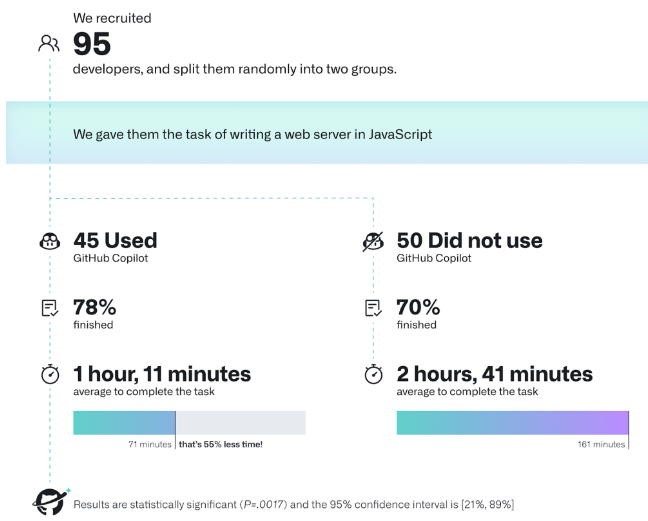🍳 Skills and assets to develop in the age of AI
AI thrives in well defined digital environments, where there is a lot of repitition and data. Much of the work your parents told you was safe, will be assisted with AI in the future.
AI has the possilitiy of changing the core of what you work on. It can automate all the boring stuff you hate doing, and let you go do what gives you energy. Afterall, most of the work humans do, doesn't play to our creative analyitcal or strategic strengths. Once we have our systems automated, we may also have our time freed to go pursue the lives we want to live.
Ultimately, the more people that can put AI to use, the better outcomes are for soceity. The video below is a talk by Dr. Andrew Ng, a Stanford professor who is one of the pioneers of opening AI education. Check out his AI for Everyone course, which focuses on building business cases around AI.
Ownership of a dataset
AI is accessible to all. Generative AI can now help small businesses have access to a top tier copy writer. Your local pizza store can do better demand forecasting, with just a few hundred Data Points.
Every person or group that owns a dataset can benefit from AI.
Strategy and Leadership
Skills in Strategy and Leadership aren't going away. They involve complex decision making and the ability to navigate uncertainty and ambiguity. AI doesn't do that well
These skills require human intuition, creativity, and empathy. Additionally, strategy and leadership involve the ability to understand and navigate the social and cultural dimensions of a problem, which are difficult for AI to replicate. Your ability to problem solve is the single most important skill to develop
The ability to inspire and motivate others, which is a key aspect of leadership, is also something that AI cannot yet do. Lastly, AI can support decision-making, but ultimately the human element is still necessary to make strategic decisions and provide visionary leadership.
Learning Ability
As the world becomes even more dynamic over the next few decades, the cardinal skill to build is that of meta learning. That means creating a process around learning things quickly and repeatably.
Human Interaction & Relationship Building
At the end of the day, humans want to work with other humans. While people can use Chat GPT to optimize texts they write, sometimes a person just needs to be on the other side of an interaction.
Our brains have been wired to read a situation and relate to it, in a way that AI will never be able to. Building relationships with other people is a core skill, which AI cannot recreate.
In certain industries, like hospitality, inefficiency is a sign of luxury. In places like these, where the means are the end, human interaction is safe.
Scientific research
AI has started a revolution in science. Because scientists can predict the outcomes of experiments, they can iterate more quickly on their tests.
However, science doesn't just look for an answer. Good science needs an explanation, and the development of scientific understanding. While AI can help with scientific discovery, it often lacks the ability to generate understanding. This is where scientists that can use AI effectively will differentiate themselves.
Programming
One of the most fascinating applications of AI is in programming. Coding platforms are integrating Code assistants, which use AI to help programmers write code, faster.
This means that the barrier to entry for programming will be even lower, and that the challenge will be more towards formulating problems for AI to solve.
At the end of 2022, DeepMind released a paper that introduced Alpha-Code. This tool can generate code, which ranks at about the 55th percentile of about 5,000 competition level programmers.
GitHub Copilot is a commercial AI tool, which writes programming suggestions across dozens of languages. It faces many of the problems, which other AI systems face. However, an internal study at GitHub showed improved developer satisfaction, conserving energy from repetitive tasks, and helps them write code faster. Below is an image, that shows how powerful an AI assisted developer can be.

Content Generation
As you've seen with ChatGPT and GPT-3, AI has a lot of power around text generation. We are witnessing the rise of general-purpose AI text agents such as GPT-3 that can generate large-scale highly refined content that appears to have been written by a human.
Salespeople can quickly draft and iterate with out reach. Writiers can generate ideas for their next piece. Academics can refine their texts to make their research more accessible.
Our written world can grow immensely from responsible AI usage.
Art
As you saw in the MidJourney and Stable Diffusion sections, AI can generate interesting art. But it is the tastemaker writing the prompts that creates and iterates towards their artwork. While generative AI looks like a threat to artists, it could become another useful technique. Photography was also once denied as art.
A massive part of a music producers process is listening to hours and hours of music. They listen for "something interesting." Once they hear that, they often have the basis for a song.
A great producer may be able to listen to new sounds by AI and find what becomes your next favorite song.